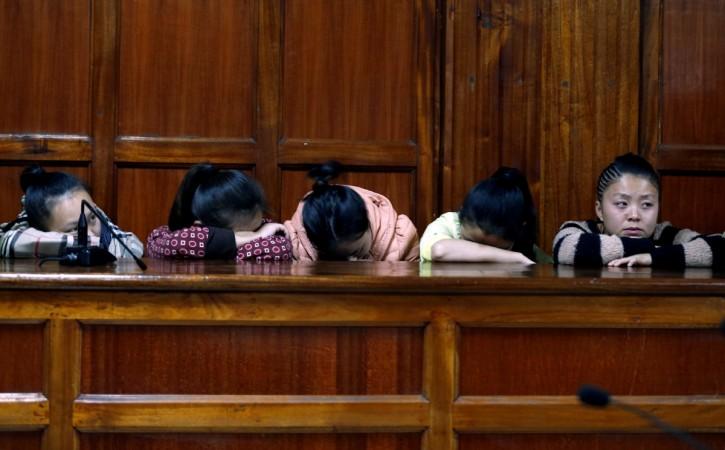
Internet has revolutionised the world, making content of any kind available online. Dissemination of information has undergone a sea change, slowly killing the mainstream media. People irrespective of age use social networking sites and mobile phone apps extensively today not only to communicate and share information with their loved ones but also to strangers.
However, social media can be a bane than a boon to many, as lack of etiquette and online harassment can cause mental trauma, depression and even suicidal thoughts to the victim. Harassers are punishable under law and can be imprisoned for several years, or fined, or both based on the nature of the crime.
[READ: National Lottery hack: About 26,500 accounts have been compromised]
Here are different types of online harassment that can land perpetrators in prison:
Cyberbullying
It is becoming a menace especially among teenagers and school-going students. Any type of act like negative posts that causes unnecessary rumours, sharing humiliating pictures, threats, and character assassination with defamatory posts through social media (Facebook, WhatsApp, Instagram, Twitter etc), websites, mobile phones belong to cyberbullying. Such acts have forced victims to take extreme steps, including dropping out from school.
Punishment for cyberbullying varies from country to country. In India, Section 66A of the Information Technology Act deals with this issue, and it can attract a punishment of up to 3 years imprisonment with a fine of up to Rs 5 lakh based on the offence.
Online hate speech
Freedom of speech is celebrated in democratic society. In fact, constitutions of almost all the countries protect it, but its misuse on social media has led to loss of lives.
According to Council of Europe's Additional Protocol to the Convention on Cybercrime, online hate speech is "any written material, any image or any other representation of ideas or theories, which advocates, promotes or incites hatred, discrimination or violence, against any individual or group of individuals, based on race, colour, descent or national or ethnic origin, as well as religion if used as a pretext for any of these factors."
It is difficult to frame online hate speech because what is considered as offensive to a certain community may not to another community. Punishment for the offence also varies from region to region. According to Bangladesh cyber laws, a person can face up to 10 years in jail if he or she defames religion through writing.
Impersonation
Social media is prone to identity theft wherein a false social media account is created in the name of someone. Some may overlook it but it cause severe damage to the image of the victim through content shared. Impersonation has lad you in trouble even if you share only light content and jokes.
In India, Section 66A of the Information Technology Act prohibits cheating by impersonation. It can attract a fine or imprisonment up to two years, or both.
Vulgar content
Some people post objectionable contents like pictures and videos on internet and social media, or even to the victim's relatives as a revenge. Such acts can harm relationships of the victim and cause lots of distress.
It may be mentioned that a revenge porn site operator in San Diego was sentenced to 18 years of imprisonment in 2015 after being found guilty of charging huge amount of money from several people to take down their obscene pictures from the website. In India, criminal case can be charged against perpetrators of such crime and could be sentenced to several years of imprisonment.
Cyberstalking
It is considered to be the most dangerous form of online harassment. It is a crime wherein the attacker harasses the victim through internet and electronics communication, including emails, instant messages and defamatory information, and spreading lies asserted as facts. Cyberstalkers can even cause a threat to people close to the victim.
The crime is punishable by several years of imprisonment in the United States. In India, Cyberstalkers are punishable by up to 3 years imprisonment or fine up to Rs 5 lakh or both under Section 72A of the Information Technology Act, 2000. Culprits can also be charged under other sections of the act based on the nature of the crime.
Doxing
People share private or identifiable information about an individual or organisation on platforms like social media and website that can be easily access by the public over some personal disagreement is doxing, which is a crime.
Such crime can attract imprisonment and fine.
Trolling
Some people intentionally comment on online article comment section and social media posts just to irritate and cause hatred. Experts say it is best to ignore them, as they won't continue for long if people don't react. However, some trolls can be dangerous and cause mental trauma to the victim. Such offence can be punished under Section 66A of the Information Technology Act in India.








